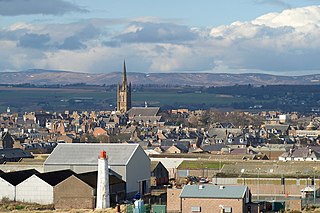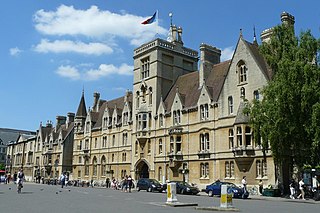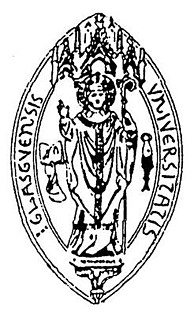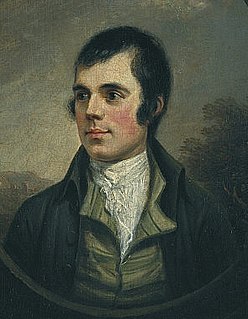
Alexander Bain was a Scottish philosopher and educationalist in the British school of empiricism and a prominent and innovative figure in the fields of psychology, linguistics, logic, moral philosophy and education reform. He founded Mind, the first ever journal of psychology and analytical philosophy, and was the leading figure in establishing and applying the scientific method to psychology. Bain was the inaugural Regius Chair in Logic and Professor of Logic at the University of Aberdeen, where he also held Professorships in Moral Philosophy and English Literature and was twice elected Lord Rector of the University of Aberdeen.
Sir Charles Harding Firth, was a British historian.
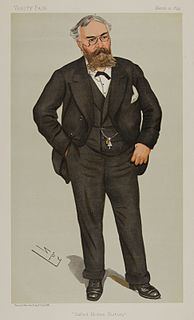
Frederick York Powell, was an English historian and scholar.

David Binning Monro, FBA was a Scottish Homeric scholar, Provost of Oriel College, Oxford, and Vice-Chancellor of Oxford University.
Lewis Campbell was a Scottish classical scholar.
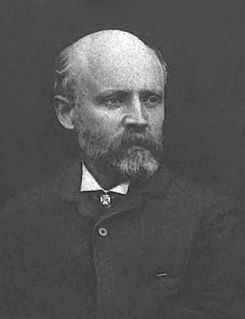
George Croom Robertson was a Scottish philosopher.

George Edward Bateman Saintsbury, FBA, was an English writer, literary historian, scholar, critic and wine connoisseur.

Marie-Paul-Hyacinthe Meyer, was a French philologist.
William Minto was a Scottish academic, critic, editor, journalist and novelist.
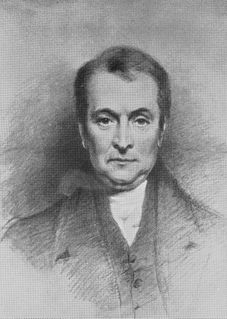
John Kidd was an English physician, chemist and geologist. Kidd was born in Westminster, the son of a naval officer and was educated at Christ Church, Oxford.

Samuel Rolles Driver, FBA was an English divine and Hebrew scholar. He devoted his life to the study, both textual and critical, of the Old Testament. He was the father of Sir Godfrey Rolles Driver, also a distinguished Bible scholar.

John Cleveland was an English poet who supported the Royalist cause in the English Civil War. He was best known for political satire.
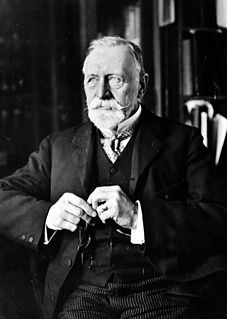
Sir Thomas Clifford Allbutt was an English physician best known for his role as commissioner for lunacy in England and Wales 1889-1892, president of the British Medical Association 1920, inventing the clinical thermometer, and supporting Sir William Osler in founding the History of Medicine Society.
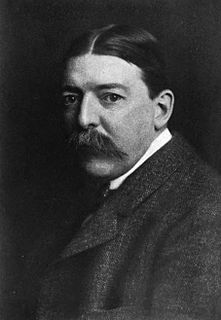
George Edward Woodberry, Litt. D., LL. D. was an American literary critic and poet.

The Regius Chair of English Language and Literature at the University of Glasgow was founded in 1861 by Queen Victoria, and is the only Regius Professorship in the Faculty of Arts.
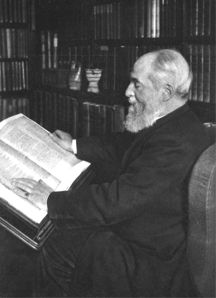
Henry Barclay Swete, FBA was an English Biblical scholar. He became Regius Professor of Divinity at Cambridge in 1890. He is known for his 1906 commentary on the Book of Revelation, and other works of exegesis.
Encyclopaedia Biblica: A Critical Dictionary of the Literary, Political and Religion History, the Archeology, Geography and Natural History of the Bible (1899), edited by Thomas Kelly Cheyne and J. Sutherland Black, is a critical encyclopedia of the Bible. In theology and biblical studies, it is often referenced as Enc. Bib., or as Cheyne and Black.
John Alexander Stewart was a Scottish writer, educator and philosopher. He was a university professor and classical lecturer at Christ Church, Oxford from 1875 to 1883, White's Professor of Moral Philosophy at Oxford, and professorial fellow of Corpus Christi College, from 1897 to his retirement in 1927. Throughout his academic career, he was an editor and author of works on Aristotle and considered one of the foremost experts on the subject. His best known books were Notes on the Nicomachean Ethics of Aristotle (1892) and The Myths of Plato (1905).

Algernon Charles Swinburne was an English poet, playwright, novelist, and critic. He wrote several novels and collections of poetry such as Poems and Ballads, and contributed to the famous Eleventh Edition of the Encyclopædia Britannica.
John George Robertson was a philologist and professor of German language and literature.



